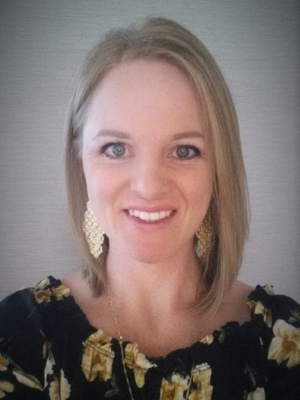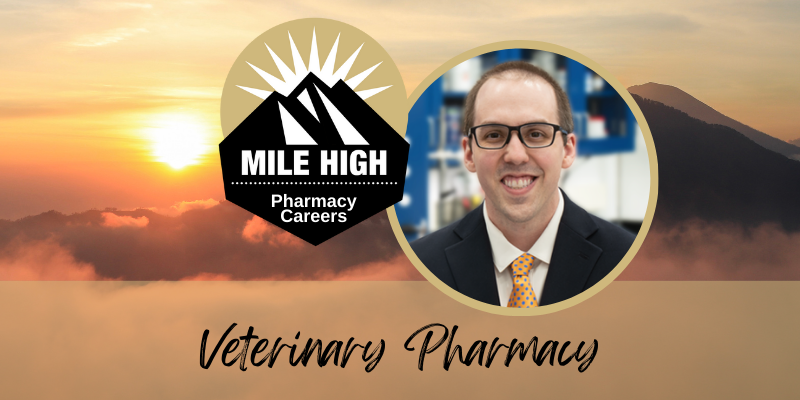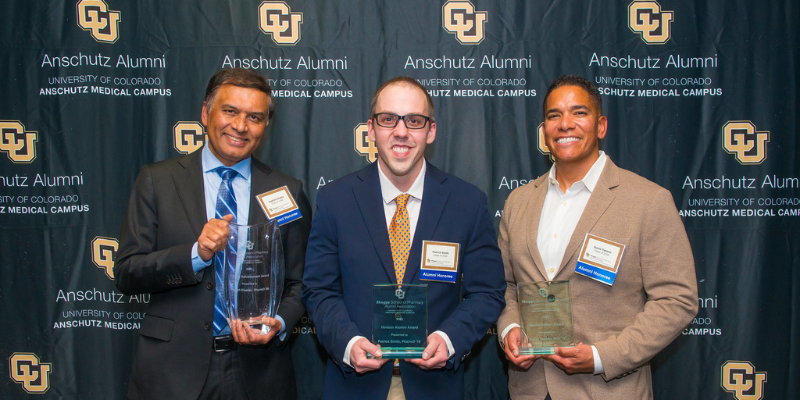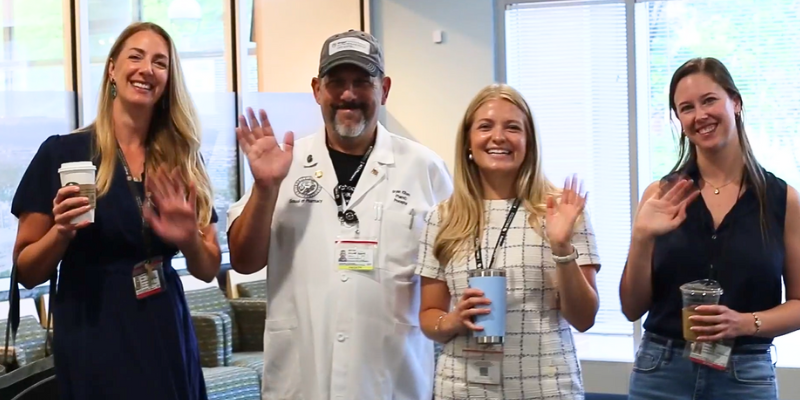What are you currently doing as a pharmacy professional and how did you progress to where you are today?

Kristin Speer, PharmD '12
|
I just changed companies, but I’ve worked in the PBM (pharmacy benefits management) industry for my entire pharmacy career after school and PGY1 residency. I just started as a clinical consultant (also called a clinical account manager) for a large, well-known PBM. Prior to now, I worked for a smaller PBM for eight years. At that smaller PBM, I worked as a Clinical Pharmacist and then Manager of Clinical Services, managing a team of clinical pharmacists where we all practiced at the top of our licenses. Palliative and hospice prescribers consulted me and my team on recommended pain and symptom regimens for their complex patients. My message to pharmacy students is 1) don’t be afraid to work at a PBM (there are two or more sides to every story you hear), and 2) working at a PBM can provide so many different types of opportunities for pharmacists that I think many people, including pharmacists, don’t realize. For job seekers, note that often a PBM might hire pharmacists with a retail background. A managed care pharmacy residency is not always required. If the role is more clinical, a residency may be required.
What is different about the person you are today compared to the person you were while in school?
The maturity factor goes up by an amount you might expect over a decade. But for me, that was also influenced by starting a family, working with seriously ill and end-of-life patients for most of this time period, and my relatively older age compared to others when they were in pharmacy school. Over this period of time, I have come to understand myself better by way of practicing with other healthcare professionals. You don’t really get exposed to the same level of interdisciplinary interaction in school as you will inevitably see in the real world. When you work with others toward the common goal of patient-centered care, you learn as much about how you approach challenges as you do about others. I think a final difference between the “then and now” me is my expectation in school about how much others, including patients and providers, would or should know about medications. Back then I thought prescribers would be fairly well-versed in medications and patients would understand the basics about their own meds. The truth is both often know less than that, and pharmacists should never assume how much (a little or a lot) anyone knows about medications.
What has been a defining moment for you as a seasoned professional?
Figuring out a revenue model that will work for my new consulting business has been a “defining moment”. I have great consulting and clinical skills I can offer to pain and palliative care patients and providers. In addition to starting a new job, I opened an LLC recently, which is actually quite easy to do. I am discovering the hardest part is figuring out the reimbursement piece (or some other model of business revenue). At this time, pharmacists do not hold “provider” status in most states and so we are not reimbursed for our services in the same way that physicians and other health care professionals with provider status are. So, reimbursement may not even be the best revenue model for my business due to my specific goals and vision. I have some ideas though, and I’m not in a hurry, so I’m more excited about the challenge and creativity shaping this “defining moment”.
What inspired you to attend the CU Pharmacy program and what was your experience while in the program?
I’m a native to Colorado. Of course, the in-state tuition and option to stay “home” were attractive. So, for my situation, it just made sense to go with this program. The CU School of Pharmacy is also highly ranked, and the program holds several other attractive qualities. My experience during school was great. I thought the curriculum was challenging and relevant. The options for electives and APPEs were plenty. What I appreciated most was how the faculty was receptive to student feedback and willing to make changes in the face of certain challenges and requests from the students. The program demonstrated flexibility and adaptability. That’s important for our profession, especially now, as it shifts into a new paradigm.
What is your proudest moment and your favorite thing about working in the pharmacy profession?
For the proudest professional moment, I have two. 1--I’ve received letters from providers and patients about how I helped improve the patient’s quality of life or made the provider’s work easier. 2-- I co-founded the Psychedelic Pharmacist Association. Psychedelic-based medicine I think will prove to be a game-changer in mental health. I joined a group of pharmacists who believed the same thing, and none of us held a BCPP (board certification in psychiatric pharmacy). It just goes to show that to spark something important, you don’t have to identify as, or fit in, a certain definition.
As far as my favorite thing, our profession is morphing into a more niche or specialized focus and away from the traditional, retail/dispensary setting. Pharmacy and the need to dispense medications will always be around, but this is becoming automated. The setting continues to degrade the pharmacist’s value. With many states granting more authority and provider status to pharmacists, we will see more pharmacist practitioners/specialists. We will see more business owners and entrepreneurs. I think this is exciting and a good thing.
What sage advice would you pass on to current and future students that was helpful for you in preparing for the job market?
I have a few things to share on this question:
1-Unless you are determined to enter retail for some deep-grounded reason, I would consider alternatives to Retail Pharmacy because of the changing retail landscape. This does not mean you have to get a residency. Though if you are attracted to doing a residency, or want a clinical job, I highly recommend one. I would also recommend a residency if you want to be more competitive. However, there are plenty of jobs out there that do not require a residency, including Long Term Care, Pharmaceutical Consulting/Market Access, PBMs, and probably several others. Also, if you want to go the business ownership route or get into the business administration side of pharmacy, you probably will not need a residency.
2- This goes along with the previous point: Decide as early as possible what you want to do. Don’t be satisfied that you simply got into pharmacy school because of the money. If you’re not careful, you will be making good money at a job you absolutely despise and might have a difficult time getting out of it. Also, sometimes it takes a little more specific work or training to get into your field of choice, if not a residency or certification. One good example is Medical Affairs/Medical Science Liaison. Often employers want to see specific training from a credentialed Medical Affairs program to consider candidates eligible for these roles.
3-Keep track of your work and accomplishments during your APPEs or other work, so your resume is easier to put together. Add numbers (or percentages) to quantify any relevant and significant accomplishments. Employers love to see numbers. Tailor your every resume to each job you apply for. I can’t stress that last point enough. It may seem like more work, but your interview rate will be higher and effectively you’ll be putting in less wasted time. Tailoring your resume also forces you to critically think about whether you really want that position, which will positively influence your satisfaction at work.







